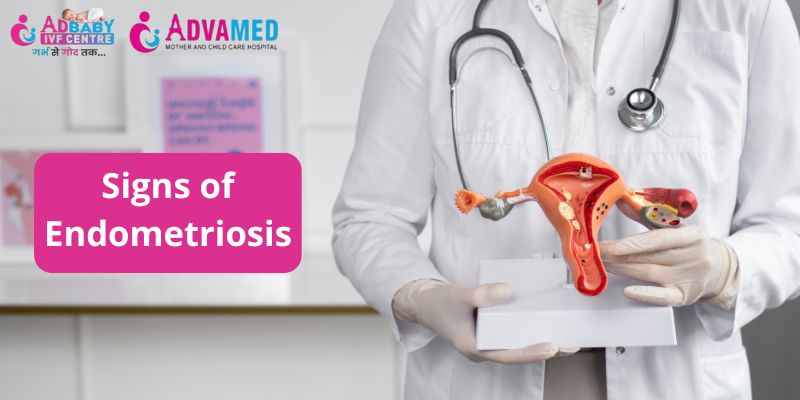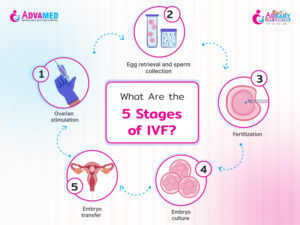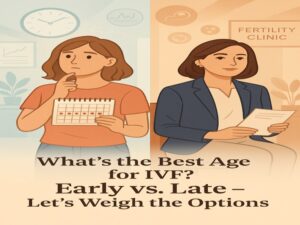Let’s be honest – you’ve probably brushed off painful periods more times than you can count. Maybe you’ve heard people say things like, “It’s just part of being a woman,” or “Take a painkiller and tough it out.” But here’s the truth: that kind of pain isn’t normal. And if it’s messing with your daily routine, it’s time to take a step back and ask – could it be endometriosis?
Why Everyone’s Suddenly Talking About Endometriosis
You’ve probably noticed it too – endometriosis is showing up in conversations a lot more than it used to. Celebrities like Padma Lakshmi, Halsey, and Lena Dunham have come forward about their experiences. Online communities like Reddit’s r/Endometriosis or Instagram health influencers are full of personal stories, symptom trackers, and even memes about heating pads and bloating.
This isn’t just awareness – it’s a full-blown shift in how we approach a condition that affects 1 in 10 women worldwide. People are tired of suffering in silence, and rightfully so.
Okay, So What Are the Early Signs?
This is where things can get tricky. Endometriosis doesn’t come with a blinking neon sign. Instead, it often whispers – until one day it’s shouting.
Here are some early signs that might be nudging you to pay attention:
1. Intense Period Pain
We’re not talking “pop-a-pill-and-go” pain. Think curling-up-in-bed, can’t-concentrate-at-work, hot-water-bottle-is-your-BFF pain.
2. Pain During or After Sex
It’s not you – it could be endometriosis. Deep pelvic pain during or after intimacy is a real and under-discussed symptom.
3. Bathroom Troubles
Pain when peeing or during bowel movements (especially around your period)? Yup, another red flag. It’s often mistaken for IBS or UTIs.
4. Chronic Pelvic Pain
A constant, dull ache that just won’t quit. And no, it’s not always tied to your cycle.
5. Fatigue That Doesn’t Make Sense
When you’re too tired to do anything beyond surviving the day, even with sleep and rest – yep, that could be inflammation from endo.
But How Do You Really Know?
Here’s where I’ll admit my limits – as helpful as articles like this are, they’re not a replacement for professional medical advice. Endometriosis symptoms overlap with other conditions like PCOS or fibroids. Only a gynaecologist can truly evaluate what’s going on.
As Dr. Nupur Sharma, a gynaecologist and IVF specialist at AdvaMed Hospital & Adbaby IVF Centre, puts it:
“If your menstrual symptoms are affecting your daily life or your fertility, you shouldn’t wait. We’ve seen too many women delay care thinking it’s ‘normal.’ It’s not – and early diagnosis can make all the difference.”
Why People Still Don’t See a Gynaecologist (Even When They Should)
You might be thinking, “It’s probably nothing. I don’t want to make a fuss.” That’s totally understandable – and incredibly common.
Here’s what might be holding you back (and why it shouldn’t):
- Medical gaslighting: You’ve been told, “It’s all in your head.” It’s not.
- Embarrassment or stigma: Talking about periods still feels taboo for many. But it’s your health – not a secret.
- Fear of diagnosis: It’s scary to confront a potential chronic condition. But ignoring it won’t make it go away.
You’re not alone, and you’re definitely not overreacting.
Real Stories, Real Impact
If you browse support forums or talk to others with endometriosis, one theme keeps popping up: delay. People share stories of waiting five, seven, even ten years for a diagnosis. That’s not just frustrating – it’s dangerous.
One Reddit user wrote:
“I started having horrible pain at 16. I wasn’t diagnosed until I was 25. If I’d listened to my gut sooner, I might’ve saved myself years of agony.”
Stories like this are pushing more people to advocate for themselves and demand answers earlier. You should too.
What Happens If You Wait?
Here’s the thing: endometriosis is a progressive condition. That means it can get worse over time. Left untreated, it can lead to:
- Chronic pelvic pain
- Scarring and adhesions
- Fertility issues
- Bowel and bladder complications
Early diagnosis and treatment can significantly reduce your symptoms and improve your quality of life.
So… When Should You Book That Appointment?
If you’re checking off multiple symptoms and feeling unsure – that’s your cue.
See a gynaecologist if:
- Your period pain is unmanageable
- You’ve had trouble conceiving
- You’re experiencing unusual pain during sex or bowel movements
- You just feel like something’s off
Even if it’s not endometriosis, your concerns are valid and worth exploring.
What the Future Might Hold
There’s reason to be hopeful. New diagnostic tools – like blood tests and AI-assisted imaging – are in development. Laparoscopy remains the gold standard for now, but that could change in the coming years.
And awareness? It’s growing. Schools, employers, and even insurance companies are starting to take endometriosis seriously. We’re not where we need to be yet – but we’re headed in the right direction.
Final Thought: You Deserve Answers
If you’ve made it this far, thank you – and please, listen to your body. You don’t need to suffer through pain just because someone told you it’s “normal.” It’s not.
Early signs of endometriosis aren’t always obvious – but they are worth investigating. Trust your gut, speak up, and see a specialist who listens. The sooner you do, the better your long-term health and peace of mind.











